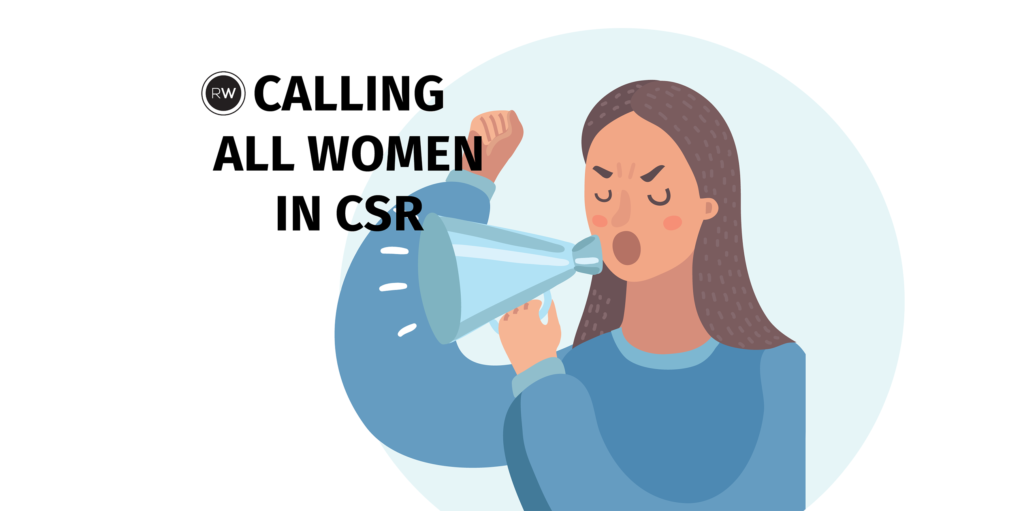Women around the world continue to have to fight for equality. In the past year, we’ve seen women stand up for themselves in very public ways. Women have marched against one of the most openly misogynistic, divisive leaders the US has seen in a long time; they’ve spoken out against powerful men who grossly abuse that power; and they’ve pushed back against powerful corporations with patriarchal reward systems, rife with institutional and outright sexism. Women have shown great courage, and have banded together.
Of course, women have done this before (throughout history, in fact), but I think what we’re tackling now are some forms of “invisible” oppression: oppressive behaviors and actions of people in a society that says those behaviors and actions are acceptable (news flash: they’re not). These are behaviors and actions that have been insidiously threaded through social norms, religion, politics, and culture for centuries.
We’re seeing women backing each other up. Corroborating. Supporting. Elevating. Getting angry. Together. We’re being led by women of color, by queer women, and by queer women of color. And we are powerful.
I’ve been asking myself what I can do in my own industry to support women, especially in a field as seemingly female-dominated as CSR. There’s plenty of literature out there on how having female leadership and gender inclusive leadership is good for a company’s CSR objectives and profit. But, I’ve found very little on how female-dominated the CSR industry is, and why. Philanthropy is a related, though different, world: it’s easier to see who’s managing charitable dollars in the US.
What I’d like to see for women in CSR is more meaningful elevation of their role in business, and more recognition of the importance of their work. I’m sure some companies are doing it, but I want to start my own contributions to this conversation by throwing out a call for visibility and for more empowerment of women in CSR.
Realized Worth has worked with over 100 brands, and we travel around the world for our work. And, in my experience, the individuals running employee engagement, corporate citizenship and volunteering programs, diversity and inclusion initiatives, foundations, community engagement programs – are primarily women. Conferences are noticeably female. It’s always very exciting for me to enter a room for a conference session and over half the room is smart, capable women who want to make an impact. But it’s a phenomenon that has made me ask myself, “What’s up with that? Why are so many of us drawn to this field?” I don’t have definite answers, but here are some of my theories.
1. Women are Socialized to Express Compassion
Here’s the thing: men are just as compassionate as women. But they tend to be taught from an early age to fight/protect, while often women are taught to nurture/tend. Because of this, many men end up going through life feeling less able to express compassion in more visible, clear ways. And because it’s a social expectation, it is one particularly beautiful thing that women tend to be very good at. We’re “allowed” to be sensitive and compassionate. And practice makes perfect, right?
I like that my gender is perceived to be compassionate. I don’t like that compassion is seen as a weakness. The women in my industry are tough-minded, results-oriented, diligent, rigorous, relentless in their pursuit of positive social change, both locally and globally. And they’re compassionate. They’ve been drawn to a career that helps them express this. This is not a weakness, but a powerful ability belonging to strong women.
As part of our ongoing battle to do away with institutional sexism, I vote that businesses start not only encouraging cultures of compassion and vulnerability, but making them part of a company’s core beliefs. A great way to do this is integrating CSR in all day-to-day business operations. Easier said than done, of course. But I think we’re up to the task.
2. Women are Drawn to Empowerment
I mean, I think a lot of people are drawn to empowerment. But women, especially women who are conscious of lifelong gender oppression, are especially drawn to a career where they can feel in control of their future, and where they can help other populations who are oppressed and who have had injustice inflicted upon them. I think this extends even further to women of color, queer women, and queer women of color. Many of these women are drawn to the nonprofit realm, but I suspect a significant amount also end up in the private sector, and many start in or move toward program management. It’s tangible: you can see strategy happen and watch the results happen in communities, in employees – in people. It can be incredibly gratifying and fulfilling to deeply feel your impact. It’s obvious what businesses can do with this observation: create more opportunities and budget for impact and further empower women in CSR, both through their daily work and through a workplace that gives them personal and financial security/equality.
I think Iceland has the right idea.
3. CSR/sustainability is Becoming a Stepping Stone to the Decision-making Table
If Larry Fink is any indication, CSR and sustainability are becoming more front-of-mind than ever for investors. Yes, that’s right, finally the people with the money seem to be moving in bigger ways toward influencing the future of our planet and its people. In the past several years, we’ve seen an increase in female leadership in philanthropy, and because of advocacy work, more companies are working toward gender inclusivity with female leadership input on boards and on leadership teams.
Larry Fink’s letter to CEOs is a development that shows a shift in business thinking that’s been on the horizon for a while: CSR and sustainability are now truly the responsibility of corporations over governments. Corporations have the power to influence governments, and consumers care now more than ever about sustainability, transparency, and trust. And women, being smart and canny business people, see CSR as not only a way to make a difference in a struggling world, but as a way to access decision-making at a higher level. They’re not wrong. And we need to keep giving women the opportunity to do both, and to work with causes and organizations that continue to further gender equality.
To all the women in CSR, and to women around the world: Happy International Women’s Day. Let’s keep helping one another, let’s keep yelling about our value, and the value of our work, at the top of our lungs.
With the World Economic Forum’s 2017 Global Gender Gap Report findings telling us that gender parity is over 200 years away – there has never been a more important time to keep motivated and #PressforProgress. And with global activism for women’s equality fuelled by movements like #MeToo, #TimesUp and more – there is a strong global momentum striving for gender parity.
And while we know that gender parity won’t happen overnight, the good news is that across the world women are making positive gains day by day. Plus, there’s indeed a very strong and growing global movement of advocacy, activism and support.
So we can’t be complacent. Now, more than ever, there’s a strong call-to-action to press forward and progress gender parity. A strong call to #PressforProgress. A strong call to motivate and unite friends, colleagues and whole communities to think, act and be gender inclusive.
International Women’s Day is not country, group or organization specific. The day belongs to all groups collectively everywhere. So together, let’s all be tenacious in accelerating gender parity. Collectively, let’s all Press for Progress. Learn more about how you can take part.

Kelly Lynch
Project Manager, Brand & Content Specialist, Realized Worth
Connect with Kelly on LinkedIn
Realized Worth is a global agency that specializes in employee volunteer training, volunteer program design, and employee engagement. Want to talk? Shoot us an email. You can also reach out to us on Facebook and Twitter.


